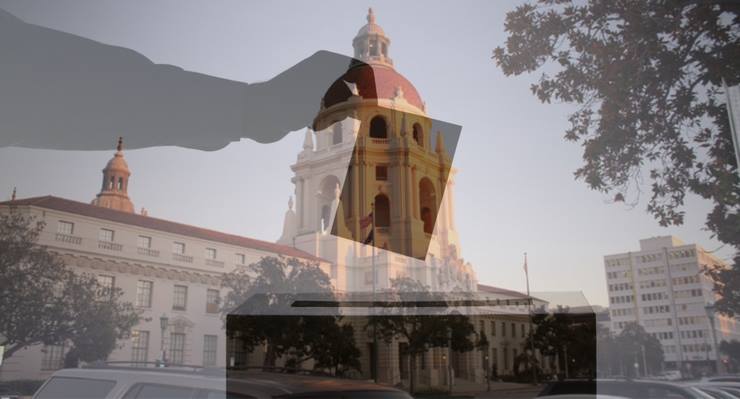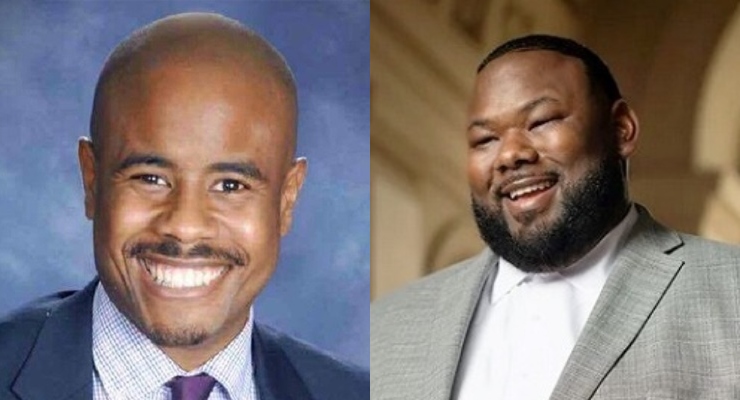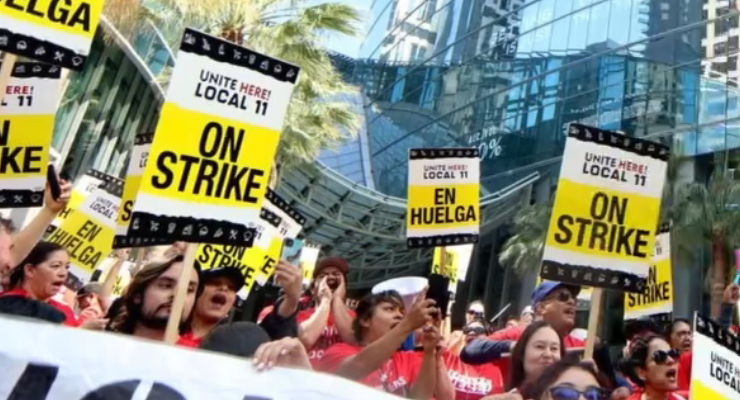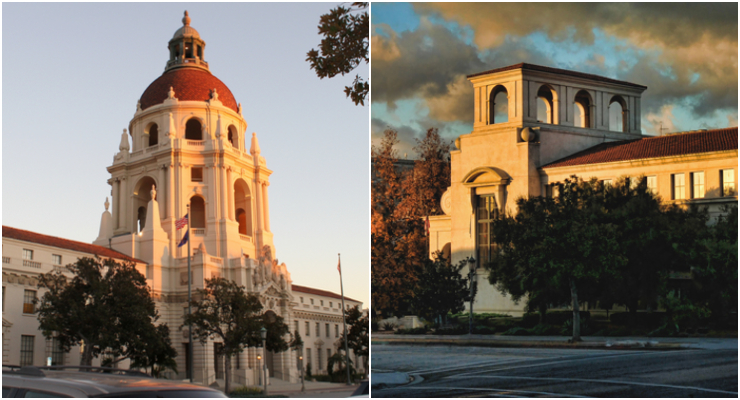
Monday figures to be a day of drama for the Pasadena City Council.
That’s when the body, continuing to meet by teleconference, will consider whether to establish a Community Police Oversight Commission, coupled with an independent police auditor – a potential response to calls from around the city, including from several council members, for increased civilian eyes and influence over the Pasadena Police Department.
But in a sign of just how controversial the recurrent city issue of civilian police oversight is, the matter will reach the full council without a formal recommendation from a council committee on whether to vote yes or no. That’s unusual.
In this case, the proposal will come before the council following a lengthy and sometimes contentious meeting of the Public Safety Committee last week in which Vice Mayor Tyron Hampton and Councilmember Steve Madison, for different reasons, objected to the concept.
“After considerable discussion, a majority of the committee voted in favor of bringing the item forward for consideration by the full City Council, but without a recommendation,’’ a staff report says.
Monday’s proposal – which is being offered in lieu of an amendment to the City Charter — is the handiwork of the Public Safety Committee’s other two members, Mayor Terry Tornek and Councilmember (and committee chairman) John J. Kennedy.
Hampton, who has spoken out previously about the need for increased oversight of the PPD, questioned the teeth of the current proposal — which would not give the Oversight Commission subpoena power, nor the ability to discipline officers. Such powers would require amending the City Charter.
“What in this do you believe is going to hold people accountable?’’ Hampton said at the Public Safety Committee meeting last week, directing his comments at Tornek and Kennedy. “This proposal falls very short of true changes.”
In emotional words, Hampton, who is Black, also highlighted the particular distrust that many African-Americans have of police. And he indicated that stronger reform measures are needed to address those fears, as cities nationwide grapple with the racial elements of police reforms in the wake of George Floyd’s death in the hands of Minneapolis police.
Hampton said he was often “afraid to put on running clothes” and run in his neighborhood, for fear of being pulled over by police. … I’ve been in Old Pasadena, walking with my wife, and had police officers ask her if she was OK.”
Hampton is one of two African-Americans, along with Kennedy, on the council.
Madison, meanwhile, questioned the speed at which the proposal is landing before the City Council, and whether the Public Safety Committee might be acting in haste amid nationwide calls for police reform following the death of Floyd, as well as other incidents around the country.
The Public Safety Committee first began discussing civilian police oversight on June 24, with the goal of bringing a proposal before the full council within 60 days.
“This is not something that we want to get out over our skis on,’’ Madison said at last week’s Public Safety Committee meeting. “We want to do this carefully, with a complete deliberation and consideration from the entire community. There’s a lot of passion and deep-seated feelings — and with good reason — about this. I just don’t want to make a mistake. I want to make sure that whatever we do is progressive, appropriate, and well-thought-out.”
Madison also said he was concerned that, with Tornek up for reelection in November, politics could be a factor.
“Let’s be candid, we’re in a political season right now,’’ Madison said. “The mayor is running for reelection and I can’t help but think that, and I don’t attribute anything malicious or ill-willed about this, but I can’t help but think that were I sitting in his seat, that I would be impacted by that, and that politics could be entering into this proposal.”
For their part, Tornek and Kennedy, in a written report to the council, called their proposal “a positive and measured step toward civilian police oversight within the confines of the existing City Charter.’’
They also wrote: “The new structure will help the community assess whether further measures are required, even some that may require amending the City Charter.’’
Specifically, according to the Public Safety Committee’s report to the council, the proposed Community Police Oversight Committee would consist of 13 members appointed by the council and nominated as follows: one by each member of the council, including the mayor; one by the city manager; one by the chief of police; and three by community groups with specific qualifications.
“The purpose of the commission would be, through public meetings, to review and make recommendations to the chief of police, city manager and City Council regarding the ongoing operations of the Police Department,’’ the staff report says.
In addition, according to the report, the proposed new commission would “receive community feedback and complaints and refer them for further review; monitor and receive reports on hiring and training; monitor and publish statistics on uses of force, complaints and outcomes; provide input on policy recommendations prior to adoption; receive reports from the independent police auditor regarding critical incidents, policies, and other matters; and produce a publicly available annual report.’’
Each member of the commission, according to the proposal, would be required to complete at least 30 hours of training in relevant subject matter.
“Furthermore, the commission would be charged with reporting back to the City Council with sufficient time prior to the 2022 general election, on any proposed changes to the oversight structure that would necessitate a charter amendment,’’ the staff report says. “Modifications of the responsibilities of the City Council Public Safety Committee will be required so as to eliminate duplication of effort.’’
In addition, under the proposal, an independent police auditor would be appointed by City Manager Steve Mermell. That auditor’s duties, according to the report, would be to:
“Serve as a best-practices advisor to the commission; review investigations of all uses of deadly force and in-custody deaths to determine if the investigations were complete, thorough, objective, and fair; review investigations of personnel complaints of bias-based policing; in conjunction with the commission, recommend changes and additions to Police Department policies, procedures, and officer training; and perform related duties.’’
The coupling of a commission and an independent auditor is similar to a structure currently in place in Anaheim, the report said.
Pasadena’s Public Safety Committee last considered civilian oversight of the police in 2016, but that process ultimately produced no changes. The PPD remains under the supervision of the city manager.
Calls for civilian oversight in Pasadena date back even earlier than that, to the early 1990s, after the death of local barber Michael Bryant and the Rodney King riots in Los Angeles. Such calls were opposed by many police chiefs and elected officials.
Kennedy has championed civilian oversight of police in the city in the past and has expressed frustration it never gained enough traction to clear the City Council. He indicated that the current proposal is at least a strong first step this time around – and is structurally designed to perhaps evolve into one with greater teeth.
During last week’s Public Safety Committee meeting, Kennedy, referring to past reform efforts, told Hampton, “I tried very, very hard to get the City Council to move in a direction where we could provide that additional police oversight that the community was clamoring for. I was unsuccessful.”
Kennedy also said that, “Yes, it would be nice to have subpoena power. Yes, it would be nice to be able to have some of the requirements that you (Hampton) spoke of, and others have spoken of, but that’s not what we have the ability to do today. Under the charter of the City of Pasadena, it’s not possible to provide subpoena power.
“We asked the city attorney to brief us publicly on a model that we could achieve, if subpoena power without charter reform is not readily available.”
Monday’s council meeting is scheduled to begin at 2 p.m. It will be live streamed at www.pasadenamedia.org and www.cityofpasadena.net/commissions/agendas.
—Additional reporting by Eddie Rivera












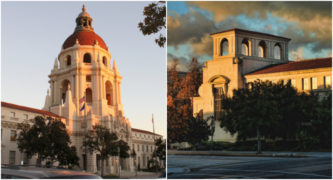

 0 comments
0 comments
